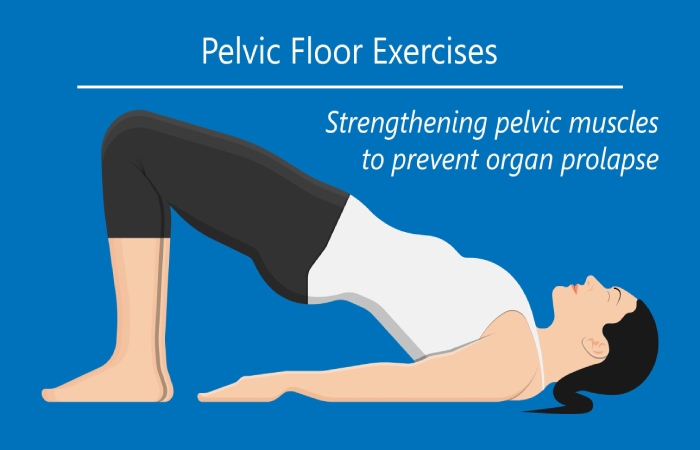Bladder Leaks: A leaking bladder is what’s also referred to as urinary incontinence. While this situation could affect both men and women of all age groups, it’s particularly more common as individual ages. Unfortunately for many, they might not feel comfortable discussing this with their family and friends. But for you to be able to manage and deal with it better, you need to have an open discussion with your urologist.
Suffering from a leaking bladder shouldn’t be a sensitive or embarrassing discussion to have as you’d need all the help you could get. On the contrary, it would only become embarrassing when it isn’t dealt with properly and you’re no longer able to go about with your daily activities with ease because you’re wetting your pants.
Your quality of life doesn’t have to suffer this way as long as you know how to manage your condition well. Perhaps a good way to start is following these tips.
Table of Contents
1. Wear Adult Diapers
First on this list is your first line of defense with a leaking bladder: wearing diapers for adults. While this may be an uncomfortable choice for many, when it has gone to a point where you may get yourself in embarrassing situations because you’re wetting your pants, you may have to accept you need to wear adult diapers.
The good news is that today, as is the case with infant diapers and sanitary napkins, manufacturers are coming up with many ‘features’ for adult diapers that make them better and more comfortable. You could take note of these features and try to be more thorough and meticulous when selecting your adult diaper so you’d end up buying the best ones.
Here are some factors to consider when choosing the most suitable adult diaper for you:
- Absorbency: Especially when your situation is more serious, you’ve got to choose one with great absorbency so you wouldn’t have to keep on changing diapers regularly. There are varying degrees of absorbency. Some adult diapers are light, which could hold only up to 1 cup of urine, whereas others may hold way more than that.
- Material: Adult diapers are made from different materials, and each material has its pros and cons. The deciding factor, however, lies in your preference. For instance, adult diapers with plastic backings could provide more protection from leakage. But these may not be necessary for those who’d be more comfortable with nonplastic diapers.
- Size: Like infant diapers, finding the right size for your adult diaper is also important. If you’re wearing a diaper that’s too small, this could be painful and uncomfortable and may even leak. If you’re wearing a diaper that’s too big, this could also leak and be strikingly obvious and bulky, particularly if you’re wearing tight clothing.
2. Watch Your Diet
Once you’ve had this discussion with your urologist, one of the tips they could give you is to watch your diet. If you change your diet or become more conscious of what you feed your body, you may be able to cut down on bladder leaks.
For instance, you could be asked to reduce your intake of alcohol, spicy food, artificial sweeteners, honey, and caffeine. Other than watching your diet, you may also be asked to reduce smoking.
3. Do Pelvic Floor Exercises

A person’s pelvic floor refers to that layer of muscles that support the bowel and bladder. When your pelvic floor weakens, your bladder may start leaking. Urine could leak when you sneeze, cough, or laugh, for example.
To strengthen your pelvic muscles, you could do pelvic floor exercises, which are also known as Kegel exercises. These aim to strengthen your muscles to support your bladder for better bladder control. In effect, leaking could be reduced or, better yet, prevented.
However, starting pelvic floor exercises may not be a program for you to decide on your own. It’s always best to consult a physiotherapist, to be recommended by your urologist, so you could have the right program for your needs.
4. Know Your Other Options
Bladder leaks: There are many other options to solve, treat, or reduce the frequency of your bladder leakage. Generally, your options would also depend on the severity of your problem. But because urinary incontinence is typically a serious concern, this isn’t one you should simply decide on your own.
Your urologist would discuss your options with you and what they feel would be best for your medical concerns. These options could be either of the following:
- Medications: to enable your bladder to hold more and improve your ability to empty your bladder;
- Surgery: done by inserting a strip of mesh to press on your urethra to prevent leakage;
- Botox injection: done on the lining of your bladder so as to block the release of a chemical that prompts the muscle contractions that push your bladder to leak.
Conclusion
If you’re suffering from bladder leaks, you could now finally give yourself workable solutions to help you better deal with your condition. You don’t have to miss out on life or your daily activities simply because you suffer from urinary incontinence. It’s not the end of the world when your bladder couldn’t function as well as it should or keep your urine in control. It only becomes embarrassing and agitating when you don’t do anything about it.
Apart from these tips above, it’s best to keep that open line of communication with your urologist. They’re the best medical professionals who could help you walk through this condition better.

